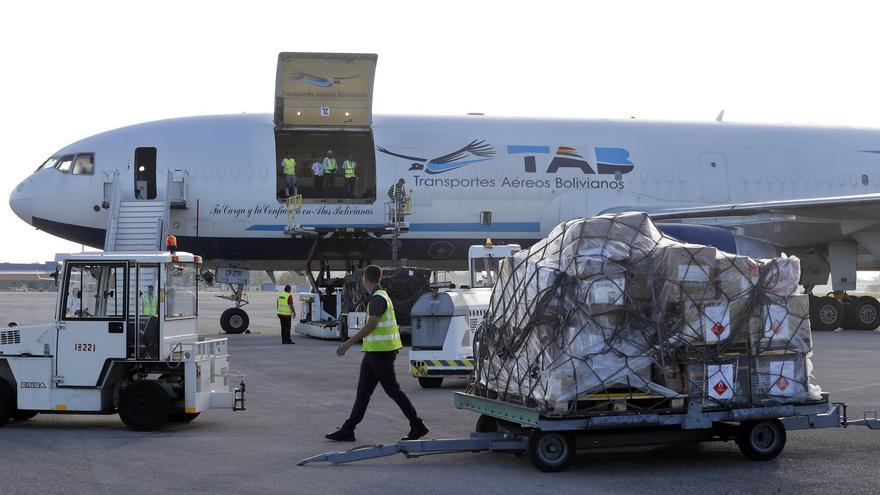
![]() EFE (via 14ymedio), Havana, August 23, 2022 — Cuba received shipments of humanitarian aid from Bolivia and Nicaragua on Monday due to the fire in the Matanzas Supertanker Base, the largest in the history of the country.
EFE (via 14ymedio), Havana, August 23, 2022 — Cuba received shipments of humanitarian aid from Bolivia and Nicaragua on Monday due to the fire in the Matanzas Supertanker Base, the largest in the history of the country.
The donations consist of food, medicine and medical supplies, according to the Cuban Government.
The aid coming from Bolivia — more than 62 tons — arrived at the Havana international airport José Martí, and the Nicaraguan aid arrived at the port of Mariel on the ship Augusto César Sandino, which had left Arlen Siu a few days ago.
During the reception at the airfield, the deputy minister of the Ministry of Foreign Trade and Foreign Investment, Deborah Rivas, thanked Bolivia on behalf of the Island government and added that the country will also support La Paz “whenever they need us.”
Likewise, in the port of Mariel, Betsy Díaz, Minister of Internal Trade, said that the donation reaffirms the “unyielding will to strengthen historical ties” between Havana and Managua, especially “at such a difficult time.”
Other countries, such as Argentina and Spain, have already announced they are sending humanitarian aid to the Island after the accident, which left 16 dead, 146 injured and 17 hospitalized.
On August 5, a huge fire broke out at the Matanzas fuel tank base, the most important in the country, when lightning struck one of the eight tanks in the industrial park, according to the Cuban authorities.
The fire — which affected four tanks with a capacity of 13,208,602 liquid gallons — caused strong explosions, with flares of hundreds of feet, and a column of toxic black smoke that reached Havana, 60 miles away.
The island decreed two days of official mourning that ended last Friday with a posthumous tribute to 14 of the 16 victims, who until last week were still considered missing, and whose bone fragments were found at the scene of the accident.
According to Cuban experts, the degree of calcination of the remains made it impossible to extract their DNA, but he said that it corresponds to those of the missing, some of whom were young people doing their military service.
The Government revealed last week the names of the 14 people but not their ages, amid criticism of dissent and NGOs that claimed that several of them were young people in military service.
Translated by Regina Anavy
____________
COLLABORATE WITH OUR WORK: The 14ymedio team is committed to practicing serious journalism that reflects Cuba’s reality in all its depth. Thank you for joining us on this long journey. We invite you to continue supporting us by becoming a member of 14ymedio now. Together we can continue transforming journalism in Cuba.
